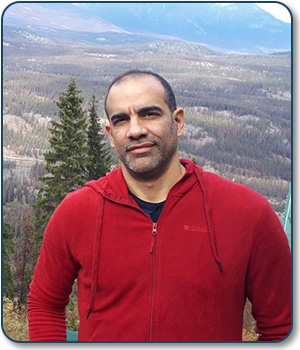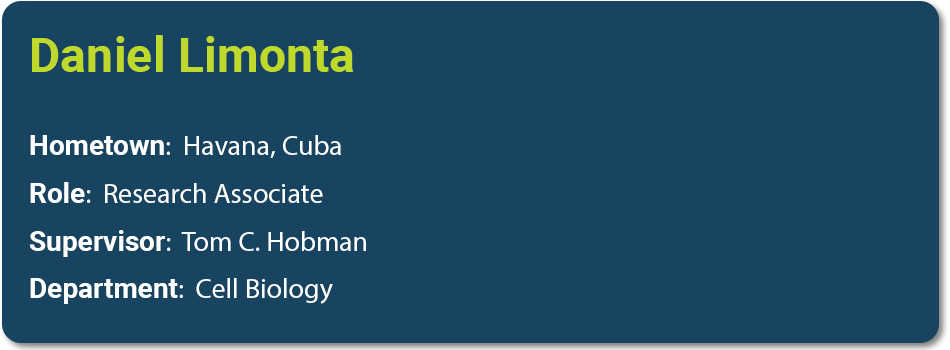2022 Research Impact Award


Publication title: Nodosome inhibition as a novel broad-spectrum antiviral strategy against arboviruses, enteroviruses, and SARS-CoV-2
How would you describe your research project to someone without a scientific background?
In this publication, I describe new broad-spectrum drugs that block infection of viruses transmitted by mosquitoes (Dengue, Zika and Mayaro viruses), as well as respiratory viruses such as Coxsackieviruses and SARS-CoV-2. While mosquito-transmitted viruses are an important problem of public health in tropical and subtropical countries, the SARS-CoV-2 is the causative agent of the current COVID-19 pandemic. I showed that two experimental drugs that inhibit the nodosome (a particular inflammatory response) have potent antiviral activity against a broad range of viruses. It was exciting to explore how these drug candidates, which were developed by a multi-national biopharmaceutical company, can be re-purposed for therapeutic use against infectious agents.
What impact did your publication have within the field or otherwise?
The most important impacts of my publication in the microbiology and virology fields were:
- It was published in a high-impact journal named Antimicrobial Agents and Chemotherapy, which is well known for publishing research about drugs with antimicrobial activity.
- A US provisional patent was filed on which I am a named inventor for the use of one of the drugs included in the publication, and other similar inflammation inhibitors, as antivirals.
- This work was selected for an oral presentation at the 2021 Annual Meeting of the American Society for Virology, which is one the most prestigious virology meetings in the world.
Briefly describe your role with the publication (in non-scientific terms).
In this publication, I designed, conducted and analyzed the in-vitro and ex-vivo experiments followed by the writing of the final version. Furthermore, I generated the original idea of studying this specific intracellular inflammatory response named nodosome during the viral infection. This first scientific approach paved the way to discover the antiviral action of the drugs that inhibit the nodosome.
Post publication, how will the research be continued, and will you have a continued role?
After the publication, I continued the research on the antiviral effects of the most potent drug described in the publication. Most importantly, I provided critical new evidence showing the importance of the intracellular target of the drug in viral replication using gene-editing (CRISPR-Cas9).
You can invite anyone — alive or dead, real or fictional — to dinner. Who would it be?
Louis Pasteur, who is one of the “fathers of microbiology”. His remarkable research helped pave the way for the development of modern microbiology.
What one word would you use to describe yourself?
Relentless.